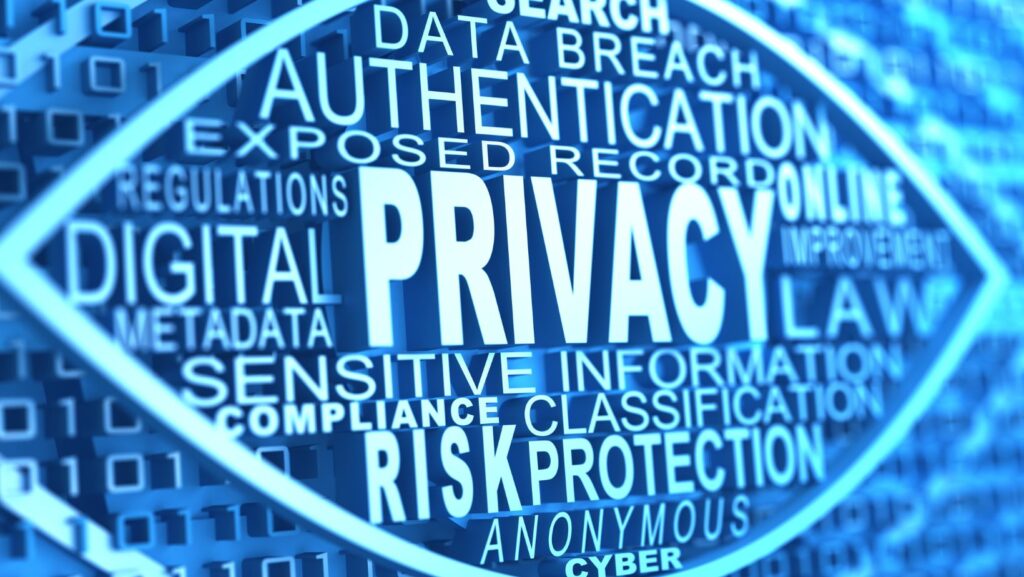In today’s digital age, online privacy protection is more crucial than ever. With the increasing amount of personal information shared online, individuals need to be vigilant about safeguarding their data from potential threats. From social media platforms to online shopping websites, every click and interaction leaves a digital footprint that can be exploited if not properly protected.
Cybersecurity breaches and data leaks have become all too common, underscoring the importance of taking proactive measures to ensure online privacy. Understanding the risks and implementing effective strategies to protect sensitive information is essential in safeguarding one’s digital identity. Stay informed and empowered as we delve into the world of online privacy protection and explore practical tips to keep your data secure in an increasingly interconnected digital landscape.

Online Privacy Protection
In today’s digital era, online privacy protection is paramount to safeguarding personal information from cyber threats. It involves controlling the access to sensitive data shared on various online platforms. Individuals must grasp the significance of maintaining privacy settings and understanding how their data is collected, used, and shared by online services.
Here are some key aspects to consider when it comes to online privacy protection:
- Data Encryption: Utilizing encryption techniques secures data during transmission, preventing unauthorized access.
- Two-Factor Authentication: Adding an extra layer of security by requiring users to provide two forms of identification.
- Regular Software Updates: Ensuring that devices and applications are updated regularly to patch vulnerabilities and protect against malware.
By comprehending these fundamental principles, individuals can navigate the online landscape with confidence and take proactive measures to enhance their digital privacy.
Importance of Protecting Your Online Privacy
Risks of Internet Privacy Breaches
Online privacy breaches can lead to identity theft and financial fraud.
Hackers may exploit personal information for phishing attacks and ransomware.
Legal Implications of Privacy Violations
Failure to protect online privacy can result in legal consequences, including fines or lawsuits.
Violation of privacy laws may lead to damage of reputation and loss of trust.
Best Practices for Online Privacy Protection
Following best practices is essential in safeguarding online privacy. Here are some recommendations to enhance digital privacy:
- Use Strong Passwords: Utilize complex, unique passwords for each account to reduce the risk of unauthorized access.
- Enable Two-Factor Authentication: Add an extra layer of security by enabling two-factor authentication wherever possible.
- Regularly Update Software: Keep all devices and software up to date to patch vulnerabilities and protect against cyber threats.
- Be Cautious with Personal Information: Avoid sharing sensitive data on unsecured websites or with unknown individuals.
- Secure Your Wi-Fi Network: Encrypt your Wi-Fi network and use a strong password to prevent unauthorized access.
- Beware of Phishing Attempts: Be cautious of unsolicited emails or messages requesting personal information and verify the sender’s authenticity.
- Evaluate Privacy Settings: Regularly evaluate and adjust the privacy settings on social media platforms and online accounts.
- Use Private Browsing Mode: Consider using private browsing modes to limit the amount of data collected by websites.
- Invest in a VPN: Utilize a Virtual Private Network (VPN) to encrypt internet traffic and enhance online privacy.
By incorporating these best practices into daily online activities, individuals can strengthen their defense against potential privacy breaches and safeguard their personal information effectively.

Conclusion
Protecting online privacy is crucial in today’s digital landscape. By understanding the risks of internet privacy breaches, individuals can take proactive steps to safeguard their personal information. With the threat of hackers exploiting data for malicious purposes and the legal consequences of privacy violations, it’s essential to prioritize online privacy protection. Implementing best practices like strong passwords, two-factor authentication, and regular software updates can significantly enhance digital privacy.
By staying vigilant, being cautious with personal information, and investing in tools like VPNs, individuals can strengthen their defense against potential privacy breaches. Empowering oneself with knowledge and taking proactive measures are key to maintaining online privacy in an increasingly interconnected world.
